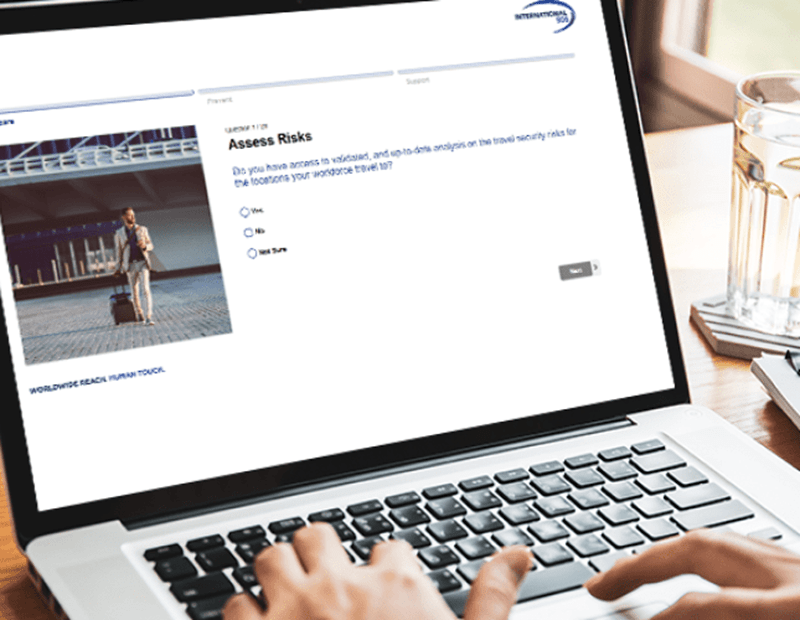Article
Why You Should Align Your Travel Risk Management Policies to ISO 31030

Your travel risk management policies are vital in upholding your Duty of Care responsibilities to your employees. The implications of not aligning ISO 31030 to your existing procedures can be detrimental to organizations reliant on business travel. Aligning your travel risk management policies accordingly promotes the health, safety, and security of your traveling workforce.
Since the pandemic, return-to-travel carries a higher degree of uncertainty and complexity. Moreover, current events, natural disasters, and civil unrest in parts of the world have also heightened concerns.
These concerns have created new issues and safety risks and emphasized those already in place. Traveling employees must feel confident that their health, safety and security concerns are addressed responsibly by their employers. As a result of the pandemic, organizations have a greater opportunity to manage risk and review safety protocols in a more focussed manner.
For instance, how prone are your business travelers to risk exposures whenever they leave their respective bases for onward travel? As an employer, you are responsible for your employees' health, safety, security, and welfare. Other risk considerations include, but are not limited to:
These risk considerations and their respective impact on your employees should always be mitigated. This is the main objective of any travel risk management program.
ISO 31030 is critical to navigate the current travel risk environment. It reflects today's business travel concerns. It must, therefore, be aligned with your travel risk management program. The advantages of doing so include:
In conclusion, travel risk management is not static. It is an ongoing and diligent process. It requires your organization and its stakeholders to continually assess external risks, align them with ISO 31030 and review your internal processes to ensure your workforce is protected.
For 40 years, International SOS has been at the forefront of supporting organizations' travel risk management plans. To help you understand the core components of ISO 31030 we provide expert guidance. We will assess the risks impacting your workforce and guide you to integrating them into your existing plans to ensure compliance.
Our team of health, safety and security experts has created a short free self-assessment to help you. Upon completion, you will receive a detailed personalized report that you can take directly to your management teams. Moreover, to ensure your business gets the best out of this ISO standard, our expert team also provides ISO 31030 training as well as a range of consulting and solutions to meet your organisational needs.
To help you evaluate your current approach to Travel Risk Management, our team of security and health experts has developed a quick, no-cost assessment. In just five minutes, you will receive a personalized report that you can share directly with your leadership team. Your tailored report includes:
